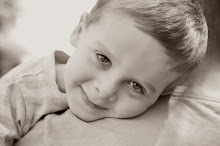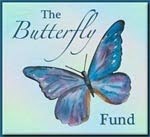This is how Alicia Arenas defines a Glass Child:
"Glass children are healthy children who have brothers or sisters with special needs. They are typically emotionally neglected, experience severe pressure to be problem-free and perfect, take on parental responsibilities within the family at a young age and have an overwhelming need to make others happy. All this while receiving little nurturing and support in their development years."
We certainly don't expect our typical child to be perfect, self-sufficient, or take on our parental duties. In fact I think we're inclined to appreciate all the little things that come along with a child because we have another child that is so physically limited. Some children naturally take on a caregiver role, especially within larger families where the children to all tend to some degree help with each other. That is not specific just to families who have special needs.
My first reaction after watching the TED talk was really? After all the hardships, after all I do in a day, how I hard I try to balance both of my children's needs, and you are still going to tell me I am failing my typical child because my first born has special needs? And you're going to grow up and blame the parents? Isn't that lovely. Immediately I had a twinge of instant guilt. You're telling me that what I am doing isn't enough. I read between the lines; the implication I am short-changing my typical child. My mind raced well how could that be? Is it because Luke naturally wants to assume a care role in assisting me with finding his older brother a diaper? Trying to feed him a bottle? Or because we have to go to therapy on Thursdays instead of to the playground?
Without question a special needs family is typically much busier than a traditional family. We are balancing parenting with a primary caregiver role. Many of us have children who's survival is dependent upon our care and lack traditional milestones and independence that comes with each growing age. And yes I'll admit it. Cerebral Palsy affects the entire family. All of us, right down to the grandparents. It will forever alter how you do things, how you plan, coordinate and even react to each other. But it does not automatically mean that you are failing your typical child while tending to the needs of your child with special needs.
And the assumption that if you have both a mixture of a typical and special needs children within your family unit that somehow the typical children are destined to get the shaft in someway... well I say hogwash to that. Special needs parents are typically a nearly a super human breed. I don't say that lightly or to brag. We can dance circles around the hardest of days, with little sleep, with little complaining and we have the ability to balance everyone's needs, sometimes minus our own.
I remember some of Noah's therapists approaching me before Luke wasn't even a year old. Get Luke into group therapy as soon as possible he'll need coping skills since he has a disabled brother... make sure he has other typical peers for proper socialization... he needs to be in pre-school immediately. Or better yet when they moved onto evaluating Luke himself. "Nice pincher grasp, look at his hands go to mid-line, or oh he's walking well for his age." With the assumption that if you have one special needs child, then all of your offspring must in some way have a condition or ailment of some kind. Unsolicited advice on how to handle your typical child up against your special needs child can be the most annoying move someone can make.
Generations of children have grown up to blame their parents for shortcomings. Rather than accepting accountability for their own actions, such as a problem with drug abuse, poor social skills, not being able to adequately hold down a job, have stable housing, or a life without crime, they love to point the finger at the parent. It's your fault you failed. So that blame the parents phenomenon is not new.
But to say that your typical child is going to grow up and tell the world they are holding a symbol of a broken childhood because they had a special needs dynamic in their family? That's simply unfair to automatically assume that all typical siblings are going to grow up and feel their childhood drew the short end of the stick.
Each day we don't have to go far to hear about inspirational stories of typical and special needs siblings helping each other. Running races for each other, being a champion to inspire change so a sibling they have can play equally beside them. Now those are the stories that reflect our family. We are not the family that fails either of our children. We are the family that bans together. All four of us, to brave this journey together. Each one of us coming out better because of it. Luke is going to grow up and tell the world how inspirational his older brother was, and I have no doubts it will drive the course of his life to help others in a way he otherwise would not have been led.
So I reject the idea that Luke is a Glass Child. We recognize all of his needs, we have adequate nurturing and support for both of our children. And if you have to point the finger in my parenting direction because I have two different able-bodied children, then maybe you can say I didn't feed them enough sugar in childhood.
Love,

Noah's Miracle by Stacy Warden is licensed under a Creative Commons Attribution-Noncommercial-No Derivative Works 3.0 United States License.
























.jpg)

